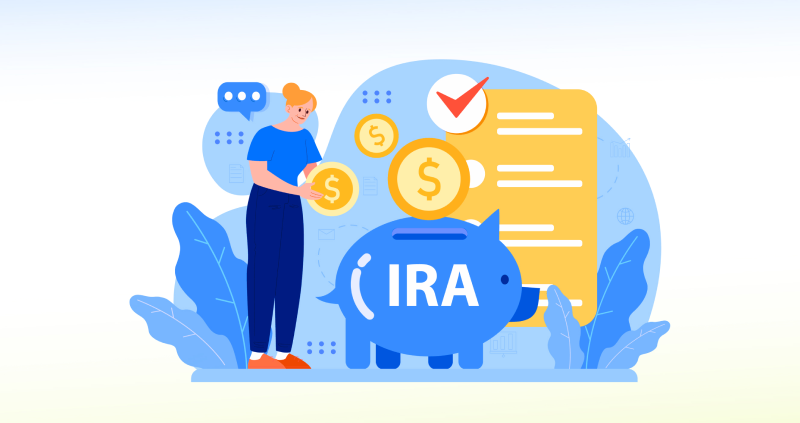Estate planning definition and checklist
A guide to securing your assets and protecting your loved ones
Home > Retirement > Estate Planning
Estate planning isn’t just for the wealthy. It helps anyone ensure their assets go to the right people while potentially avoiding legal complications.
A will and a trust serve different purposes. A will outlines asset distribution and goes through probate, while a trust can bypass probate for a smoother transfer.
Regular updates are crucial. Life changes, such as marriage, children, or financial shifts, should prompt a review of your estate plan.

What is estate planning?
Before diving straight into the details, let's define estate planning.
Estate planning is the process of delegating your assets — including all land and real estate, financial securities, cash, stocks, art, pensions, debts, life insurance, and any other economically valuable possessions — to your surviving family members. This planning includes allocating assets to heirs, settling estate taxes and debts, or even passing on guardianship of children or pets (if applicable).
While often prepared with the help of an attorney, a carefully constructed estate plan can help ensure that your assets are passed on to their rightful heirs in a way that minimizes excessive taxes. Estate planning can be a lengthy process; some important steps include listing all assets and debts, writing a will or trust, and even reviewing accounts or planning for estate taxes.
Estate planning checklist
Before getting started with your estate planning, there are many things to consider, including writing a will, powers of attorney, and estate tax laws. While there is a plethora of estate planning information out there, here is a checklist to help you get started:
- Make an inventory
- Plan for your family
- Write a
- Review
- Appoint your directives
- Review
Make an inventory
Even if you think you don’t have enough for estate planning, you may be surprised at the amount of things you actually own. Creating an inventory is a great way to get an overview of your assets — whether tangible or intangible.
Tangible, or physical, assets may include:
- Real estate properties or land.
- Vehicles including cars, boats, or motorcycles.
- Collectible items such as art, antiques, coins, etc.
- Any other personal possessions or sentimental items.
Intangible assets may include:
Checking accounts, savings accounts, high-yield savings accounts, certificates of deposit, or other bank accounts.
Insurance policies, including life insurance.
- Stocks, bonds, mutual funds, or other investments.
Retirement plans, including workplace 401(k) plans or individual retirement accounts, such as a Roth IRA.
- Health savings or annuities.
You may also want to include any outstanding debt, such as mortgages, credit card debt, or any other unpaid debt. Having your outstanding liabilities in a list with your other assets may help estate executors notify creditors after your passing.
If you have multiple beneficiaries, you may also want to consider making copies of your inventory for each beneficiary.
Plan for your family
Planning for your family starts with understanding what is estate planning and how it can help protect your loved ones, distribute assets, and ensure your wishes are followed when you are no longer here.
You may want to consider:
Writing a will: Start writing a will if you do not have one already. We will cover more details about writing a will in the section below.
Appointing a guardian for your children or pets: Are you leaving behind minor children or pets who will need care? You may want to state who will take guardianship of your children or pets in your will. You could even consider a backup guardian, just to be safe, to avoid costly custody fights with family members.
Review your life insurance: Do you have enough life insurance to leave behind for your family? If you are still wondering how much life insurance you need, you may want to consider if you are married, have children or other family members who are financially dependent on you, or if you currently live a lifestyle that requires more than one income. You could even consider looking over your financial planning for the family to see if your life insurance could cover enough costs. These and other factors may help determine how much life insurance you should have. You may also want to ensure your life insurance beneficiaries are up-to-date.
Review retirement accounts: Again, you will want to consider who will be inheriting your estate after you’ve passed. Reviewing your retirement accounts is crucial, in particular for accounts that have beneficiaries. Since these accounts could be passed directly to the beneficiary, you will also want to ensure you have this updated.
Write a will
A will is a legal document that outlines how your assets and belongings should be distributed after your death. It allows you to:
Name beneficiaries who will acquire your property or other assets, and instruct how or when beneficiaries will receive said assets.
Name an executor to manage your estate. This refers to the individual responsible for managing and carrying out the instructions on a will after someone passes away. They have strict legal obligations and are usually appointed by the court, or the testator.
Designate guardians for children who are minors.
- Indicate if a trust should be created after you pass away
Having a will may help avoid legal complications for your family and other loved ones. Although you can handwrite and make copies of a holographic — or handwritten — will, it is also recommended to make one online, as certain states may not accept a holographic will. Online wills are created and stored digitally using online platforms, which provide templates and prompts to help better ensure your will meets legal requirements.
The validity of a will is proven through a process called probate. This process is also needed to distribute assets you listed in your will.
Probate
Probate is a legal process of validating a deceased person’s will and distributing their assets according to their wishes — or state law — if no will was written. It ensures debts, taxes, and other legal claims are settled before beneficiaries can receive their inheritance.
The process begins with filing the will in court. Creditors and heirs are then notified, and the will gets verified for authenticity. The executor then pays any outstanding debts and taxes before distributing remaining assets. Once all obligations are met, the estate is then closed.
While probate ensures a structured transfer of wealth, it can be a time-consuming process, taking months to years, depending on the complexity of the estate. Some assets, including those listed in trusts, can bypass probate. Some ways your investment assets can avoid going through the probate process include joint ownership, designating beneficiaries, or living trusts.
It may also be important to note that when your will enters the probate process, it becomes a public record, meaning anyone can request to see your will and all details in it, including assets, beneficiaries, debts, charitable donations, and so on.
Trusts
A trust in a will, also known as a testamentary trust, is a way to manage and distribute your assets after you pass away. It helps ensure your money and property are handled according to your wishes, especially for minors, loved ones with special needs, or those who may need extra financial guidance. Trusts may also help reduce inheritance taxes and avoid probate delays, making the inheritance process smoother and more secure for your beneficiaries.
While a will has to go through probate, a trust allows you to transfer assets directly to beneficiaries without probate. This offers more control over how and when your assets are distributed, may help minimize estate taxes, and also provides added privacy — since it does not become public record like a will does. Many people use both wills and trusts to create a well-rounded estate plan.
Review beneficiaries
We’ve already covered reviewing beneficiaries for life insurance and retirement accounts, but how is this relevant estate planning information, and in what other matters will this come into play?
Since beneficiary designations can supplant instructions listed in your will or living trust, it is crucial that you have the correct person listed. Therefore, it is important to make sure the beneficiaries you have listed are up-to-date. This may be especially relevant for life insurance and other insurance accounts, retirement plans, or any other important things listed in your will or inventory. Keeping your beneficiaries updated is especially important if you established an account or policy years ago. You may even want to consider listing contingent beneficiaries as well, in the event that your primary beneficiary passes away before you. Having beneficiaries could avoid a lengthy process of distributing assets in your estate, so you may want to appoint them carefully.
Appoint your directives
Directives are legal documents that outline your wishes for medical care, finances, and other important decisions, in the event that you become unable to communicate them yourself. Directives can help ensure your wishes are followed, and may help to ease the burden on your loved ones during difficult times.
Common types may include:
A living will: Specifies medical treatments you do or do not want to receive. This can also be known as a medical care directive.
Healthcare power of attorney: Appoints someone to make medical decisions on your behalf. This may also be combined with a living will, known as an advance health care directive.
Financial power of attorney: Authorizes someone to manage your finances if you are unable to. This would give your appointed person the rights to act on your behalf in financial and legal situations — including managing your assets, paying your bills, loans, taxes, and other finances — if you are unable to do so yourself.
Because the people you appoint to these directives will quite literally have your life and finances in their hands, you may want to appoint different people to specific directives. You could even consider having backups just in case.
Review estate tax laws
When planning an estate, it is also important to consider federal and state taxes, as they still apply to estates. This can considerably reduce the value of your assets, before reaching their appointed beneficiary.
In general, federal estate taxes only apply to estates with large values. As of 2025, this only applies to estates worth more than $13.99 million, with taxes ranging from 18 - 40%. You may also want to check your specific state for estate or inheritance taxes, as this may vary. Since taxes can affect your beneficiaries, it is best to consider this in your estate plan.
Is estate planning relevant for me?
Estate planning is not just something the ultra-wealthy should consider. Regardless of economic background, anyone can begin estate planning. Some reasons to consider estate planning include: preserving generational wealth, providing for loved ones, such as a spouse or children, funding your children’s education or other bigger expenses, or even leaving part of your legacy to a charitable cause. It can even cover matters like who gets ownership of your pets, and what to do when it comes to planning your funeral.
Therefore, you do not necessarily need to be a high-net-worth individual to build an estate plan. Even if you don’t want to get started right away, it is already a great start to be looking into estate planning information and mistakes to avoid. If you are a woman, you might even want to consider looking into estate planning for women, as there tend to be some unique differences as well.
Bottom line
Estate planning is more than just writing a will — it’s about securing your legacy and protecting your family and other loved ones. No matter your financial situation, having a plan in place ensures your wishes are honored and your family is taken care of. Start early, revisit it regularly, and consider seeking professional advice to make informed decisions.
It’s a good idea to consider starting estate planning as soon as you begin accumulating assets. Just getting started? Raisin can help make the most of your savings. Check out the Raisin marketplace and start building your financial future today.
The above article is intended to provide generalized financial information designed to educate a broad segment of the public; it does not give personalized tax, investment, legal, or other business and professional advice. Before taking any action, you should always seek the assistance of a professional who knows your particular situation for advice on taxes, your investments, the law, or any other business and professional matters that affect you and/or your business.


